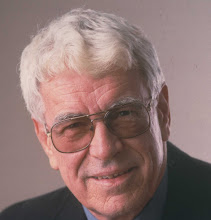September 28, 2008
Tommy is bored. Cindy updated her profile. John “thinks this week rocks already.” Thelma went from “being single” to “in a relationship.” Edith bought Oscar for $486 on “Hotties for Sale.” Heinrich “bought a leather whip in Blood Lust.”
If this stream of odd snippets sounds familiar to you, you're probably one of the 100 million-plus people with accounts on Facebook. Such social-networking sites are the hottest thing on the Web right now. I'm on Facebook along with everyone else. But I really don't understand the phenomenon.
The social-networking sites out there include MySpace, of course, and Tumblr and sites like deli.cio.us, where you can share bookmarks, and Digg, which allows you to share and rank web content. LinkedIn is a networking site for professionals, and I'm there too, sharing my credentials, ready to network with peers and engage with potential clients.
I'm not on Yammer, though, or on its non-commercial ancestor Twitter, a site that allows its users to send and read little tiny messages called “tweets” no more than 140 characters all day long. Tweets are constant answers to the question, “What are you doing now?”
Well, um, I'm on the bus. I'm scratching myself privately. I'm going for coffee. I flatulated rowdily.
Twitter has more than 100 clones, all of them gushing constant twaddle. Come on, guys, who cares? Yeah, I may want to know what you're doing if we're both supposed to be at a meeting, and you're running late. But isn't that what the phone is for? What is the point of this torrent of narcissistic nonsense?
I don't know that there is any point, in the ordinary sense. I got onto Facebook because I asked a beloved teenage niece why people were urging me to join Facebook, and she went over to the computer and led me through the process. Because of that, I was able to follow her progress as she toured Europe with a friend, and she was able to broadcast her experiences, regularly, to friends all over the world.
Pretty cool. And that's a great benefit of Facebook. It gives me a peek into the world of my children and grandchildren and my 27 nieces and nephews, who are doing all kinds of interesting things all over the country. It provides a link to my friends and neighbours in Isle Madame when I'm not there.
Nevertheless, I'm wary. If knowledge is power, privacy is freedom. And so when I recently found myself in a breakout group at a conference of undergraduates led by a stubble-bearded social-networking oracle named Eli Singer, I had a few questions. Like, why do people want to tell the world that they were blind drunk or hopelessly stoned last night? Why would you post your photo albums, your videos, your opinions about art and politics and religion, your cell phone number, and even provide directions for guests to get to your house party?
An astute McGill undergraduate named Johnson Fung had some interesting observations. In earlier periods, he said, people found their identities in the relationships with family, community, church, profession and other social groups. In a fluid postmodern world, the importance of those groupings has faded, and the roots of identity have become mysterious. Facebook and its ilk allow people to forge and shape their identities as an act of will, with reference to a community of electronic peers.
Fascinating. But do people realize that they really can't remove themselves from Facebook or withdraw information they've posted on it? Once it's posted, Facebook owns it.
Eli Singer, a hoary old relic of 31, had some horror stories of his own. He reminded the group that most recruiters and employers today will routinely check out a potential employee's Facebook page, and silently reject stoners and party animals. A student remarked that elite graduate schools do the same thing. Eli recounted the tale of the Saugeen Stripper who, in a moment of lighthearted lunacy, peeled for the boys in a University of Western Ontario residence while the cameras were rolling. The footage became one of the most-watched videos in cyberspace, and though the girl had done nothing illegal, the publicity forced her to leave school.
“Control your information,” Eli counselled. “You have to manage the screens of your life, the way you present yourself online.” Remember, he said, Facebook forgets nothing. Google forgets nothing it keeps copies of every single email. Own your own domain. Blog on your own site. Turn your Facebook privacy settings up to the max. If you don't want something known, don't release it.
But in the cyberworld, there's really no escape. There's even a social networking site for the dead. Truly. Where did you think your Facebook information would go when you die? You're not going to heaven, you're going to Footnote.com. Electronic immortality. Who knew?
-- 30 --
Thursday, October 2, 2008
Subscribe to:
Post Comments (Atom)

2 comments:
I really this entry and agree with you about facebook's complete narcissistic focus. As I observe facebook, and reluctantly participate, I reflect on a book I read ages ago - Reality Therapy by Dr. William Glasser - Dr. Glasser theorized that the "baby boomer" generation shifted from their parent's focus on the formation of goals in life to the formation of roles in life. That shift in the '60s from goals to roles - add the predictions by McLuhan,"the medium is the message - Warhol's " 15 minutes of fame , Leary's - “"Turn on, Tune in, Drop out."” add the internet and Generation X - voila:facebook is spawned.
sorry about the typo - I meant to write: I really enjoyed this entry . . .
Post a Comment